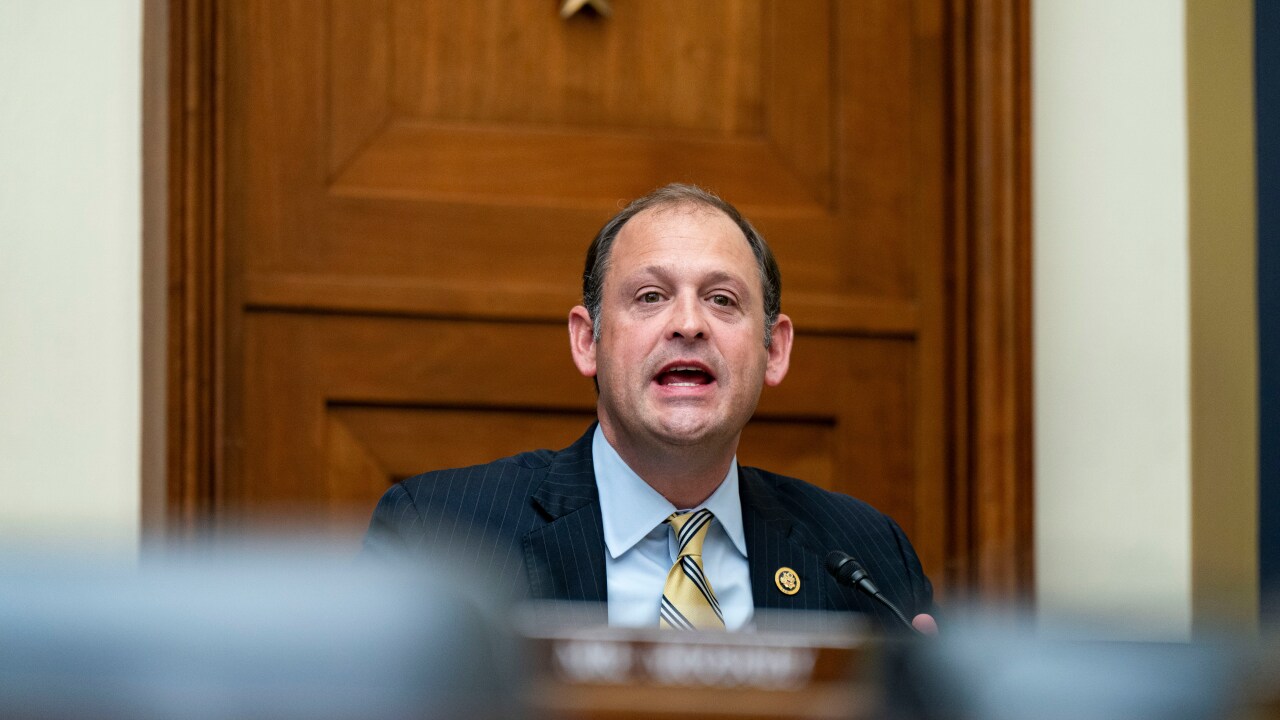
CHICAGO – Bruce Rauner hasn't been able to broker a state budget, but the Illinois governor was able to move the market for Chicago school bonds – in a costly direction for the school district.
Leaders of the Democratic majorities in the state capital dismissed a Rauner-backed Republican proposal to take over the junk-rated Chicago Public Schools and put the district on a possible path toward bankruptcy, but it resonated with the market.
With the district due in the primary Wednesday, spreads in secondary market trades shot up after the General Assembly's GOP minority leaders announced on Wednesday plans to introduce legislation backed by Rauner that could lead to state oversight and possibly bankruptcy for Chicago's schools. Democrats who control the legislature labeled it dead on arrival.
One CPS bond traded at a spread of 449 basis points to the Municipal Market Data's top-rated benchmark after the announcement, up from 397 basis points before, according to data from Markit. Another trade showed a jump in a 2041 maturity of 61 basis points to a spread of 446 basis points. CPS bonds had been trading at a 350 to 375 basis point spread to the Municipal Market Data's top-rated benchmark a week earlier.
Market participants were already warning that the district will pay a punishing rate on its $875 million general obligation issue.
"There's no question all this state takeover/bankruptcy noise will hurt the deal and may scare off traditional muni buyers," said Triet Nguyen, a managing director at NewOak Capital LLC.
"If you are interested in this deal you probably know they are insolvent but it doesn't help the prospects for the Chicago Board of Education to have the governor of the state saying your school district needs to be taken over and restructured right in front of your deal," said Brian Battle, director of trading at Performance Trust Capital Partners in Chicago. "It gives investors an excuse to demand more yield."
In the district's previous bond sale, in April when it still carried low investment-grade ratings, the top yield of 5.63% on a 25-year maturity landed 285 basis points over MMD.
Following a spate of downgrades, only Kroll Bond Rating Agency still rates Chicago school bonds at investment grade. It rates the new deal BBB with a negative outlook, one notch higher than existing bonds due to legal opinions on the structure.
Fitch Ratings and Standard & Poor's rate the district B-plus, the same level as Moody's Investors Service's B1. All warn of the potential for further action with Fitch assigning a negative outlook and S&P holding it on watch with negative implications. Moody's, which is no longer asked to rate new CPS deals, has it under review for a downgrade.
Despite the noise, JPMorgan appears to have built enough of a book of potential orders to release on Thursday the schedule and structure on the deal's $795 million tax-exempt series.
The heavily back-loaded deal offers $46 million in a 2035 term, $181 million in a 2040 term, and $568 million in the final maturity in a 2044 term bond, according to market sources. The remainder of the transaction is selling in a taxable series.
One market participant said JPMorgan’s release of the structure means the firm has sufficient order indications at a still unknown price level. That doesn’t mean JPMorgan won’t end up taking down some bonds or that the timing or size of the deal could change. “This is going to be a very hard deal to place,” said one public finance banker at a firm not on the deal.
The district also could face further headwinds in the coming days. Schools chief Forrest Claypool was to announce administrative cuts Jan. 22, but that would be seen as a positive as the district works to shave costs.
Claypool has warned the district's cash flow is so dire that teacher layoffs could come as soon as next month if the state doesn't provide an additional $480 million in aid. The district's investor presentation says it can stay afloat and avoid teacher layoffs through the fiscal year June 30 with the help of short-term lines.
"Four [trading days] is a lot of time in a highly-charged political environment," Battle said. "Headline risk is really elevated right now."
Buyer support will also depend on factors like market conditions, currently in the district's favor with plenty of investment cash available and strong demand for yield. Investors also give weight to the perceived strength of a double-barreled pledge that includes a statutory lien on state aid as well as the district's GO pledge.
While the structure could aid bondholders in a bankruptcy filing, it can't prevent default. Several market participants said the district's need to maintain market access and attract short-term lines to stay afloat provides it strong incentive to avoid default.
Many traditional buyers either can't participate due to the junk-bond ratings or are scared off by the district's struggles and reliance on short-term borrowing to pay its bills.
"They're shut out already by most mutual funds who can't buy that rating and eventually will be shut out of junk funds by the amount of Chicago paper that they can buy without violating diversification requirements," said John Mousseau, director of fixed income at Cumberland Advisors Inc.
CPS needs to get the deal done for the immediate budget relief it provides.
About $393 million of the bond proceeds will fund capital projects; $135 million will refund variable-rate debt that is being shifted to a fixed rate; $86 million will retire short-term debt used to cover swap termination payments; and $206 million represents a scoop-and-toss restructuring. The rest will cover capitalized interest and issuance costs.





